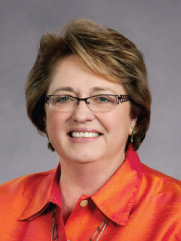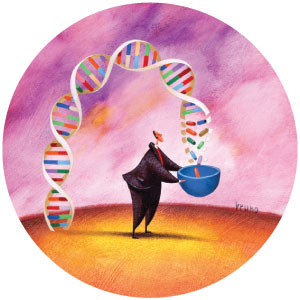 |
| Joycelyn Lee Robinson, Ph.D. |
| |
 |
| Joycelyn Lee Robinson, Ph.D. |
The John P. Hussman Institute for Human Genomics at the Miller School is dedicated to the discovery of the genetic influences on human health and the application of this knowledge to the practice of medicine through improved diagnostics and treatments. Institute members have made key contributions to the understanding of the genetic causes of disorders including
Alzheimer’s and Parkinson’s diseases, multiple sclerosis, autism, age-related macular degeneration, glaucoma, and cardiovascular disease. While we have begun to see the impact of genomics in medicine, we are concerned with growing health disparities due to the underrepresentation of blacks and Hispanics in research studies.
Although biomedical studies are unraveling the etiology of these disorders, most participating families in the U.S. are non-Hispanic Caucasians. Yet U.S. prevalence data suggest equal rates of these disorders in blacks, Hispanics, and Caucasians. The absence of black and Hispanic participation in biomedical research has resulted in a paucity of empirical data around epidemiologic, biologic, and genetic issues for these groups, which—despite their growing presence in the U.S.—are underserved medically and understudied genetically. Studies of complex diseases such as cancer and Alzheimer’s show that genetic variability among ancestral groups has substantial implications for disease risk and management. However, these groups can reap the benefits of genomic medicine only through participation in biomedical and genetic studies.
 |
We believe that increasing public awareness and education will improve the participation of diverse populations in genomic research, and we are strongly committed to this goal. With a two-year, $500,000 grant received from the Life Technologies Foundation in November 2009, we created the Genetics Awareness Project (GAP) to provide education on genetics and genomic medicine to the understudied populations of multi-ethnic South Florida, a perfect environment to promote genetics and genomic research.
In our first year we developed educational materials in English, Spanish, and Creole to increase public understanding of genes and their role in health. Tailored to specific audiences, such as elders, high school students, and allied health professionals, the brochures, flyers, and presentations are based on focus group data
suggesting that many South Floridians have only a vague understanding of
genetic research. The materials thus address basic questions: What are genes and chromosomes? How do genes impact disease? How can understanding one’s family health history improve medical care?
Since its inception, GAP has coordinated more than 60 educational activities across Miami-Dade and Broward counties, and we plan to continue them through November. Initial feedback has been positive. Early data from our presentations suggest that people
are more likely to consider participating in genetic research after attending one of our events. We are also conducting focus groups and surveying more than 1,000 South Floridians on their attitudes toward genetic research.
The final phase of
the grant will occur in Spring 2012 with a two-
day conference on diversity and genomic medicine targeted to health professionals, genomic
researchers, and the South Florida community. In October 2010 we were honored to receive an award for outstanding outreach from the South Florida Business Journal for GAP. We hope these efforts will improve community awareness and increase diversity in research participation.
For more information about GAP, please visit www.geneticsawareness.org or call 305-243-1406.
Joycelyn Lee Robinson, Ph.D., is associate research scientist and Margaret Pericak-Vance, Ph.D., is the Dr. John T. Macdonald Foundation Professor of Human Genomics and director of the John P. Hussman Institute for Human Genomics. |
 |
 |


